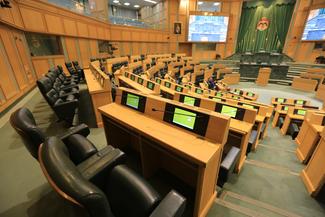- ImpactWe help parliaments to become greener and to implement the Paris agreement.We support democracy by strengthening parliamentsWe work to increase women’s representation in parliament and empower women MPs.We defend the human rights of parliamentarians and help them uphold the rights of all.We help parliaments fight terrorism, cyber warfare and the proliferation of weapons of mass destruction.We encourage youth participation in parliaments and empower young MPs.We support parliaments in implementing the SDGs with a particular focus on health and climate change.
- ParliamentsNearly every country in the world has some form of parliament. Parliamentary systems fall into two categories: bicameral and unicameral. Out of 190 national parliaments in the world, 78 are bicameral (156 chambers) and 112 are unicameral, making a total of 268 chambers of parliament with some 44,000 members of parliament. IPU membership is made up of 180 national parliaments
Find a national parliament
We help strengthen parliaments to make them more representative and effective. - EventsVirtual eventThe International Court of Justice (ICJ) was constituted under the United Nations Charter to help nations settle disputes peacefully in accordance with international law.
- Knowledge
Discover the IPU's resources
Our library of essential resources for parliamentsGlobal data for and about national parliamentsLatest data and reports about women in parliamentResolutions, declarations and outcomes adopted by IPU MembersRecent innovations in the way parliaments workThe latest climate change legislation from the London School of Economics' database
Jordanian Parliament overhauls plenary management and broadcasting in 45 days

© EU-JDID Facebook page
Under the auspices of the EU Support to Jordanian Democratic Institutions & Development project (EU-JDID), the House of Representatives set out to introduce a new plenary management system with features including: biometric authentication of MPs; desks with touchscreens allowing members to consult all sitting papers, register to speak and request services; and automatic live broadcasting of proceedings.
The implementation challenges were considerable, especially with the parliamentary calendar only allowing for a 45-day recess instead of the technically required 90 days. Yet, under the leadership of Secretary General Mr. Firas Adwan and the coordination of ICT Director Mr. Ammar Awamleh, the project delivered the system overhaul in 45 days – finishing exactly one day before the start of the first session of 2019. The implementation story yields some interesting observations and good preparation and execution practices that are worth sharing and may help inform other parliaments that envisage similar systems.
Gradual feature activation
Within the given time window there was limited opportunity to train MPs properly. Hence it was decided to first activate only the critical features of the system (e.g. RFID card voting, microphone activation) and gradually expand to others (e.g. register-to-speak, biometric authentication, and service requests for coffee, assistance, ICT support, etc.). This approach avoided MPs and the ICT team being overwhelmed and allowed time to learn about the system and gradually register MPs’ fingerprints, which is always a sensitive matter.
Early language localization
While the system offered multiple languages, including an Arabic interface, localization issues were anticipated. Mr. Awamleh therefore visited the vendor in Europe prior to manufacturing and shipment to provide early, direct input on the Jordanian Arabic system interface and the etchings required. This avoided post-implementation corrections and unwanted delays.
Revision of plenary procedures
The Permanent Bureau of the House acted in a timely fashion to revise the plenary procedures in order to mandate electronic voting as the preferred option; distribute session papers in electronic format by default; and require that attendance, voting and registration-to-speak be recorded via the system.
Revision of ICT support procedures
Along with the new technologies, the ICT team rolled out a complete new set of standard operating procedures for system preparation and operation. Also, ICT staff were trained and assigned to deliver adequate support to MPs.
Increased transparency and public interest
As plenary proceedings are now automatically live-streamed on the House YouTube and Facebook channels, MPs and the public are taking more notice, resulting in more video clips of proceedings being posted and shared on social media. The online channels also serve as an online video archive of the proceedings.
Measuring the return on investment
Systems of this kind are expensive. However, if introduced in conjunction with a cost-savings strategy the return on investment can be significant. The House Administration recently conducted a first study demonstrating clear cost savings in areas such as paper, printing and maintenance, national courier delivery services, and live-streaming (previously outsourced to a private company).
Continued learning from other parliaments
As the House of Representatives considers the next wave of developments to further integrate the chamber systems and information services, it is seeking to learn from the experience of other parliaments. An upcoming study visit to the Staten-Generaal of the Netherlands will provide ample opportunity for this and is therefore a welcome addition to the project.
Contact:
Mr. Ammar Awamleh, ICT Director, House of Representatives of Jordan
E-mail: [email protected]
Tel.: +962 6 5635100




